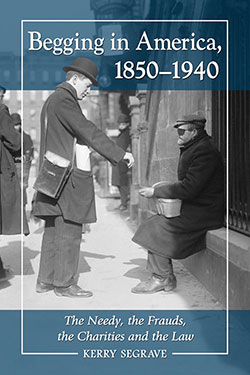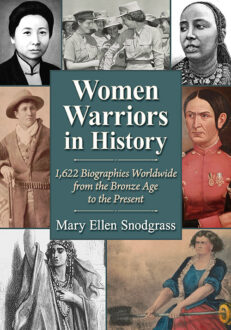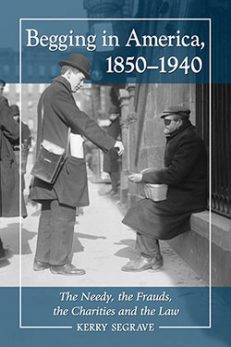Begging in America, 1850–1940
The Needy, the Frauds, the Charities and the Law
$49.95
In stock
About the Book
The poverty that drives people to begging has been a pressing social issue in the United States since the beginning. This historical work explores begging1and beggars in the period 1850 to 1940, with emphasis on how the police, the courts, the media and private charity organizations dealt with them. Efforts to suppress mendicancy are explored, including legislation, police crackdowns, and public vouchers for meals and shelter. Of particular interest is the way in which media portrayals have guided public perception of mendicants.
Despite the massive social upheavals the last two centuries have brought, all efforts to suppress begging have failed. Many of the complaints and arguments made against beggars and begging in 1850 and 1900 and 1940 were also made into the 21st century because, in the end, the public continued to give alms.
About the Author(s)
Bibliographic Details
Kerry Segrave
Format: softcover (6 x 9)
Pages: 208
Bibliographic Info: notes, bibliography, index
Copyright Date: 2011
pISBN: 978-0-7864-6569-9
eISBN: 978-0-7864-8907-7
Imprint: McFarland
Table of Contents
Table of Contents
Preface 1
Introduction 3
1. Begging Prior to 1850 5
2. Description, Prevalence, Style, Attitude, 1850–1899 11
3. Frauds, Fakes, Myths, 1850–1899 32
4. Psychology, Worthiness, Solutions, 1850–1899 44
5. Charity Organizations, 1850–1899 56
6. Police and the Courts, 1850–1899 69
7. Description, Prevalence, Style, Attitude, 1900–1940 82
8. Frauds, Fakes, Myths, 1900–1940 105
9. Psychology, Worthiness, Solutions, 1900–1940 130
10. Charity Organizations, 1900–1940 144
11. Police and the Courts, 1900–1940 157
Conclusion 177
Notes 181
Bibliography 191
Index 199





